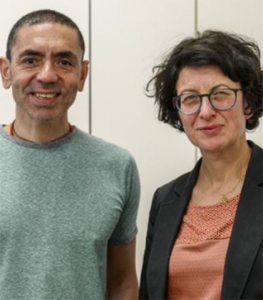Migrants driving Germany’s innovation – report
Migrants in Germany are pulling more than their weight in driving innovation in the nation’s hi-tech economy, according to a new report.
Economists Oliver Koppel and Enno Kohlisch say migrants are making an “indispensable contribution” to Germany’s strength in innovation.
 Their report examined who has sought patents in Germany in recent years and it found more than 11 per cent of all patents developed in Germany can now be traced entirely to inventors with migrant backgrounds.
Their report examined who has sought patents in Germany in recent years and it found more than 11 per cent of all patents developed in Germany can now be traced entirely to inventors with migrant backgrounds.
In 1994, this figure was only 3.8 per cent and it has risen steadily since.
“In other words, shortly after reunification inventors with a migration background were responsible for barely one in 25 patents developed in Germany but now the ratio is one in nine,” the report says.
The authors point to Uğur Şahin and Özlem Türeci of BioNTech, a Turkish migrant couple, who received Germany’s Federal Cross of Merit for their development of the world’s first mRNA COVID-19 vaccine.
“The two are emblematic of the indispensable contribution migration now makes to Germany’s strength in innovation,” they say.
“The bottom line is that the cumulative amount of patent applications developed in Germany increased by 2.9 per cent between 2008 and 2018.
“Those by inventors from the German language area however fell by 1.8 per cent, while those by inventors from non-German language areas increased by 84 per cent—and among them those by inventors from the Indian and Chinese language areas by as much as 303 and 139 per cent respectively,” the report says.
In other words, the moderate growth in patent applications developed in Germany over the last ten years is exclusively thanks to inventors with a migration background.
Without them, Germany’s economy-wide patent activity would have fallen.
The report says this is demographic problem,
German-born patent applicants has stagnated or fallen over the last decade because of labour-market bottlenecks in technical-scientific qualifications and occupations.
So, the 13.5 million people born in Germany in the ‘baby-boomer’ decade gave rise to only 7.9 million children and adolescents between the ages of five and 14.
The consequences of this have reached the Germany’s technical meaning fewer students each year to take technical-scientific subjects, adding to the pool of potential German inventors.
The report says that rather than reducing higher-education capacity, German authorities should attract students from abroad to study in Germany.
“Germany faces enormous challenges in innovation—from decarbonisation, health protection and digitalisation to technological competition with China,” the report says.
“Only through more innovation, and thus cosmopolitanism and immigration, can these challenges be overcome and at the same time wellbeing be secured,” it says.
“In the current pandemic hardly any foreign students and specialists are however coming to Germany and this could have a negative impact on innovation performance soon.
“But here the circle closes: two inventors with a migration background, Şahin and Türeci, developed an effective solution for the cause of this problem,” the report said.












